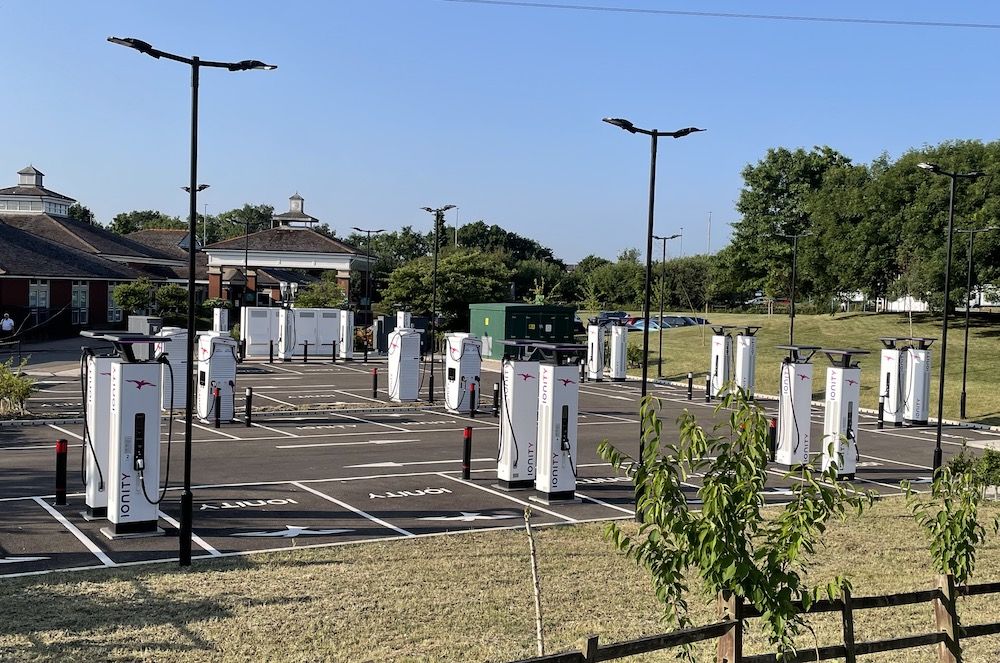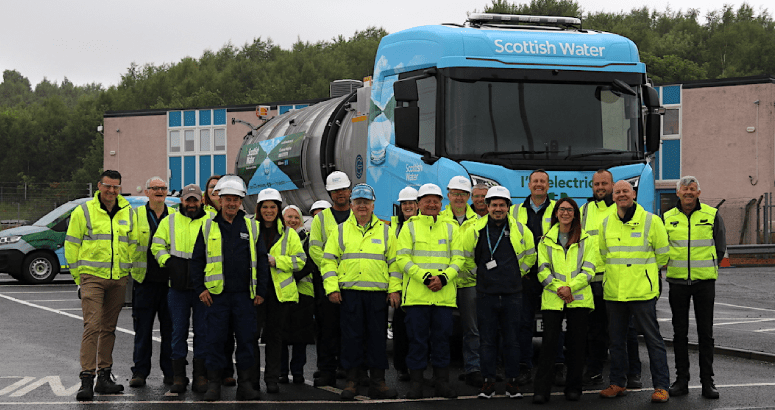Think tank Onward has published its latest research report, Greening the Giants, which includes devolution of the national EV charging network to local authorites.
The report finds that the government will not deliver on its commitment to net zero by 2050 without taking radical action to decarbonise the 12 most carbon-intensive industries, which together represent three-fifths of UK emissions and employ one in every five jobs. But up to 1.7 million new green jobs – half of which are in the North, Midlands and Scotland – could be created if the strategy is changed.
It claims that 12 industries, including aviation, agriculture, steel, manufacturing and construction, make up 62% of all UK carbon emissions. The report said decarbonising these industries will likely have a disruptive effect on the UK economy as they represent 23% of UK output and 21% of current UK jobs.
The carbon-intensive firms represent 51% of jobs in these industries in northern regions, and are hard to decarbonise. The research underlines the political and economic challenges of delivering net zero, and the wholesale transformation of the UK’s industrial base it will require. This is mitigated by the considerable opportunity to generate new net zero jobs through low and zero carbon technologies.
The report finds that up to 367,000 jobs in electric vehicles and 36,000 jobs in low carbon power could be created out of the overall 1.7 million that could be made from committing to the net-zero pathway in the sixth carbon budget. In terms of economic value, the move would see an increase from £4bn to £158bn into the EV and associated infrastructure.
79% of industrial emissions abatement through hydrogen is likely to take place in the Midlands, North and Scotland, along with 77% from Carbon Capture and Storage and Bioenergy with Carbon Capture and Storage and 56% of electrification projects.
The report puts forward 25 recommendations for the transition, including:
- Establish a Net Zero Delivery Taskforce, modelled on the Vaccines Taskforce.
- Introduce a new industrial Contracts for Difference scheme for green hydrogen and carbon capture.
- Introduce a Carbon Takeback Obligation (CTBO) requiring importers and extractors of fossil fuels to permanently store a percentage of carbon dioxide generated by the products they sell
- Require a proportion of the materials in net zero technologies to be sourced from the UK supply chains
- Publish regional carbon budgets to hold local and mayoral authorities accountable for their progress on emissions, while devolving responsibility for EV charging networks and retrofitting housing stock to local government.
- Use the UK’s chairmanship of the G7 in the summer to promote the idea of the Green7.
Ted Christie-Miller, report co-author, said: “The UK has successfully halved its emissions since 1990, but that means the low-hanging fruit have already been picked. The next phase will require the wholesale transformation of industries that are integral to our economy and vital for regional jobs. It is essential the Government helps these industries to make the transition, while helping new net zero industries to flourish. “
“We need to green the giants of industry through smart regulation and bold industrial strategy, using the energy around COP26 and the recovery from the pandemic to drive a net zero agenda over the next decade that is as ambitious as the pandemic response has been over the past year.”
Dame Caroline Spelman, co-chair of the Getting to Zero commission: “The need to move to net zero is a must. This detailed research by Onward shows what the impact will be on different industries and regions and why we need targeted mitigation. This ground breaking research will enable evidence based policy making by Govt both national and local and above all help avoid aggravating existing inequalities by seizing the opportunities that net zero affords”
Rt Hon Caroline Flint, co-chair of the Getting to Zero commission: “Is it possible to level up and get to net zero when carbon intensive industries are concentrated in the Midlands and the North of England and Scotland?
“Our report “Greening the Giants” provides some of the answers to how the dirty dozen can be reborn. And if policymakers make the right calls these transformed industries can be located in the very same areas that right now are set to lose out.”
Ruth Edwards MP, member of the Getting to Zero steering group, said: “The green transition is both a challenge and an opportunity for the UK. We are in the middle of a fundamental rethink of the way many of our oldest industries do business. This Onward report sets out how we can transition to a greener economy whilst staying true to our commitments to protect jobs and communities and to ‘level up’ opportunity throughout our country.”
image from Shutterstock














